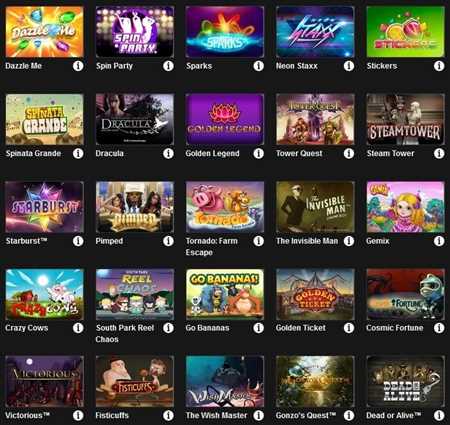

The landscape of electronic wagering establishments is set to undergo significant transformations as new guidelines are implemented to ensure responsible gaming practices. This approach aims to refine the operational hours of various venues, ultimately fostering a healthier environment for patrons and encouraging more mindful engagement with recreational activities. By instituting periods of downtime, the focus shifts toward the well-being of individuals while nurturing a more sustainable entertainment culture.
As the changes roll out, establishments will shift their operational schedules, promoting a thoughtful pause in electronic gaming activities. This initiative stands to benefit both players and the industry, as it seeks to mitigate potential issues arising from excessive participation. Emphasizing the importance of balance between leisure and other life aspects, these measures advocate for a more conscious approach to entertainment.
Notably, one prominent venue will remain unaffected by these new directives, allowing it to maintain its regular operations. This distinction highlights varying regulations within the industry, reflecting diverse approaches to fostering responsible engagement among patrons. As the implementation date approaches, stakeholders will be keenly observing the impact of these changes on player behavior and the overall atmosphere within the gaming community.
Recent developments in the regulatory landscape aim to reshape the operational framework surrounding betting venues. These changes are designed to enhance responsible play and contribute to a safer environment for the community. As authorities move forward, significant updates will impact the hours of operation for certain types of electronic wagering systems.
The upcoming rules will introduce specific timeframes during which these platforms will not be accessible to patrons. This initiative reflects a growing commitment to mitigate potential harm associated with excessive gambling activities, promoting a balanced approach to leisure and entertainment. The regulatory measures are intended not only to foster healthier habits among users but also to encourage establishments to adopt practices that prioritize player welfare.
While these regulations apply widely, notable exceptions have been outlined, allowing some venues to maintain their customary access hours. This nuanced approach aims to address varying needs within the industry, ensuring that while restrictions are implemented, the impact on business operations remains manageable. Stakeholders are urged to stay informed about these changes and prepare for the transition as the timeline approaches.
The recent decision made by the authorities aims to implement a pause in certain activities during the early morning hours. This initiative is rooted in a broader vision to promote responsible behavior among patrons and to minimize the adverse effects associated with late-night entertainment options. By introducing these limitations, the government seeks to create a healthier environment for individuals who frequent these establishments.
One of the primary motivations behind this measure is public health and safety. The late-night hours are often linked to an increase in risky behaviors and potential harm, both to individuals and the community as a whole. By enforcing a respite during these critical hours, officials hope to reduce instances of distress and ensure that individuals have the opportunity to make more informed choices when engaging in recreational activities.
Furthermore, the government considers this strategy as part of a comprehensive approach to gambling regulation. This aligns with ongoing efforts to address issues related to addiction and financial distress that can arise from excessive participation. By temporarily halting operations during early hours, there is a chance for individuals to step back and assess their engagement levels, potentially curbing harmful habits.
In addition to health considerations, the decision also reflects a response to community feedback. Numerous voices have expressed concerns regarding the impact of round-the-clock accessibility on families and local neighborhoods. By implementing these time boundaries, the government aims to strike a balance between personal freedom and communal responsibility.
Ultimately, this initiative serves as a proactive measure to promote a culture of moderation and awareness, fostering a sense of accountability among both operators and consumers within the entertainment landscape.
The restriction on late-night operations in the gaming sector is anticipated to offer significant advantages for both individual well-being and community development. By implementing these time limitations, several positive changes can be expected in the lives of many individuals and society at large.
Overall, these changes may contribute positively to the fabric of society, helping to create a more robust and healthier community with a focus on well-being and quality of life.
The implementation of enforced downtime for specific entertainment venues raises significant economic implications. Analyzing the financial landscape reveals potential shifts in consumer behavior, revenue generation, and market dynamics that could influence both local businesses and the broader economy.
Key aspects to consider include:
In summation, a thorough assessment of the economic repercussions is crucial for all stakeholders involved. Strategic planning and adaptability can play vital roles in navigating the financial landscape shaped by these regulations.
This section outlines the critical milestones and dates associated with the upcoming operational adjustments within the gaming sector. It serves as a guide for stakeholders, providing a clear overview of when changes will take effect and the phases involved in the rollout.
Initial Announcement: The formal announcement regarding the new regulations took place in early 2023, marking the beginning of a transitional phase for all venues involved.
Stakeholder Consultations: Between March and May 2023, extensive consultations with industry representatives, operators, and community groups were conducted to gather insights and feedback on the proposed changes.
Regulatory Framework Finalization: By July 2023, the regulatory body finalized the framework, ensuring all necessary guidelines and compliance measures were clearly defined for operators.
Public Awareness Campaign: An informational campaign is scheduled to launch in the first quarter of 2024, aimed at educating the public and stakeholders about the upcoming transitions and their implications.
Implementation Date: The official implementation of the new hours will commence on June 1, 2024, allowing venues to adjust their operations accordingly ahead of this date.
Monitoring and Evaluation: Continuous monitoring will take place from June 2024 to December 2024, evaluating the impact of these changes on both the industry and the community to ensure they meet desired objectives.
The upcoming regulations will require establishments to adapt their operating hours, presenting both challenges and opportunities for business owners. This transitional phase will be crucial for strategizing how to manage operations effectively while ensuring compliance with the new guidelines.
Entrepreneurs should begin to assess their current workflows and customer engagement strategies. Identifying peak hours and understanding customer preferences will aid in making informed decisions about staffing and service offerings during the adjusted timeframe. Additionally, implementing marketing campaigns to reshape customer habits can play a pivotal role in maintaining revenue streams.
Furthermore, businesses need to engage with their staff to prepare them for the changes ahead. Training sessions and open discussions can foster a collaborative environment, encouraging employees to voice concerns and contribute ideas. This proactive approach will help in building a resilient workforce ready to navigate the new landscape.
Collaboration with local communities and other businesses can also provide valuable insights. Sharing experiences and strategies will not only enhance adaptability but can cultivate a sense of unity among establishments facing similar transformations. Moreover, leveraging technology can streamline operations and improve communication with customers.
Ultimately, the key to a successful adjustment lies in a well-thought-out plan that embraces flexibility, innovation, and customer-centric strategies. By preparing adequately, businesses can turn potential obstacles into growth opportunities, ensuring sustained success in the evolving market.
To ensure compliance with newly established regulations, a robust system for oversight and implementation is essential. This framework will encompass various methodologies for observing operations and taking appropriate action against non-compliance.
Key components of an effective monitoring and enforcement strategy include:
Furthermore, penalties for non-compliance should be clearly defined and consistently enforced. A transparent approach not only strengthens accountability but also fosters trust among stakeholders.
Through these measures, the goal is to maintain a fair and responsible environment that aligns with community standards and expectations.
The recent decision to implement specific time restrictions on electronic gaming establishments is poised to significantly influence the landscape of the wagering sector. This initiative aims to promote responsible gaming practices while potentially altering customer behavior and revenue streams.
As the new regulations are enforced, several key areas may experience noticeable changes:
Overall, the influence of this regulatory shift will likely be multifaceted, prompting both challenges and opportunities as organizations navigate the evolving environment of the wagering industry.